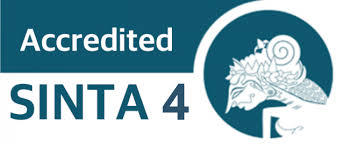- Focus and Scope
- Section Policies
- Peer Review Process
- Publication Frequency
- Open Access Policy
- Archiving
- Screening for Plagiarism
Focus and Scope
AHJ is an open-access, peer-reviewed journal dedicated to the publication of novel research in all aspects of health issues, with particular attention paid to the hospital setting, including clinical and non-clinical research, hospital management, and health technology. Original research articles, case reports, and literature review articles written in English and featuring well-designed studies with clearly analyzed and logically interpreted results are accepted, with a strong preference given to research that has the potential to make significant contributions to both the field of health and society in general.
Section Policies
Articles
Peer Review Process
All manuscripts submitted to AHJ undergo a rigorous screening and review process to ensure that they align with the journal's scope and meet the standards of academic quality and novelty that appeal to AHJ's readership. AHJ employs a double-blind peer review, in which both author(s) and reviewers' identities are concealed from each other.
Initial screening. The Editor-in-Chief will screen a newly submitted manuscript for its conformity to AHJ’s scope and basic submission requirements.
Peer-review. If the manuscript passes the initial screening stage, it will be assigned to a handling editor, who will then send it to at least two experts in the relevant field to undergo a double-blind peer review. Manuscripts that fail to pass the initial screening will be rejected without further review.
First decision. A decision on a peer-reviewed manuscript will only be made upon the receipt of at least two review reports. In cases where reports differ significantly, the handling editor will invite an additional reviewer to get a third opinion before making a decision. At this stage, a manuscript can either be rejected, asked for revisions (minor or major), accepted as is, or (if significant changes to the language or content are required) recommended for resubmission for a second review process. If it is accepted, the manuscript will be returned to the submitting author for formatting. The final decision to accept the manuscript will be made by the Editor-in-Chief based on the recommendation of the handling editor and following approval by the board of editors.
Revision stage. A manuscript that requires revisions will be returned to the submitting author, who will have up to three weeks to format and revise the manuscript, following which it will be reviewed by the handling editor. The handling editor will determine whether the changes are adequate and appropriate, as well as whether the author(s) sufficiently responded to the reviewers' comments and suggestions. If the revisions are deemed to be inadequate, this cycle will be repeated (the manuscript will be returned to the submitting author once more for further revision).
Final decision. At this stage, the revised manuscript will either be accepted or rejected. This decision is dependent on whether the handling editor finds the manuscript to have been improved to a level worthy of publication. If the author(s) are unable to make the required changes or have done so to a degree below AHJ's standards, the manuscript will be rejected.
Publication Frequency
Publish every March and September
Open Access Policy
- Academic Hospital Journal provides immediate open access to its published articles, with authors retaining copyright and free to deposit their work in any repository at any time.
- Articles are published under a Creative Commons Attribution-ShareAlike 4.0 International license. In addition to being freely accessible, they may be copied, shared, or adapted for any purpose in any medium, as long as appropriate credit is given to the author and Academic Hospital Journal and changes are indicated.
Archiving
This journal utilizes the LOCKSS system to create a distributed archiving system among participating libraries and permits those libraries to create permanent archives of the journal for purposes of preservation and restoration.
Screening for Plagiarism
Manuscripts submitted to AHJ will be automatically screened for plagiarism using Turnitin. Papers found to contain a significant amount of plagiarism (including self-plagiarism) will be automatically rejected.






.png)



